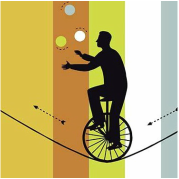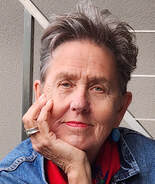Time to come out of the closet and admit to being a denizen of a shadowy netherworld society ... the precariat.

Sitting happily atop Standing’s version of the socio-economic heap is the global elite,
“a tiny minority of absurdly rich and high-earning people”. Squatting very unhappily at the bottom is an “army of unemployed” and “a detached group of socially ill misfits".
Somewhere in between lie the “salariat”, who enjoy (for the moment at least) high-incomes and stable, full-time employment, and people like me - the “proficians”. who Standing describes as “self-selling entrepreneurs, living opportunistically on their wits and contacts”.

My recent applications for “real” jobs - the ones that come with sick pay, holiday pay and a predictable infusion of cash each week – have been unsuccessful. It seems I'm either under-qualified, over-qualified, or too old. Or perhaps I just haven’t made my C.V. quite appealing enough. I will come back to this subject later.
Standing doesn't have a category for the folks who make a living by writing self-help books for the precariously-positioned profician. He should have.
I've immersed myself in the oeuvre this summer, plunging into such encouraging tomes as these:
- “What Colour Is Your Parachute: A Practical Manual For Job-Hunters And Career-Changers”
- “The Essential Guide To Business For Artists And Designers”
- “An Enterprise Manual For Visual Artists And Creative Professionals”
- “Kick-Ass Creativity: An Energy Makeover For Artists And Creative Professionals”
- “You Don't Make A Big Leap Without A Gulp”
- “Make It Mighty Ugly - Exercises And Advice For Getting Creative Even When It Ain’t Pretty”
- “Disciplined Dreaming: A Proven System To Drive Breakthrough Creativity”
I’ve also read books like these which target the salariats who are wondering just how much longer they can survive the life-sapping stress of the high-paying job they know they are lucky to have:
- “Be A Free Range Human: Escape The 9 To 5, Create A Life You Love and Still Pay The Bills”
- “The 4-Hour Workweek: Escape 9-5, Live Anywhere, and Join The New Rich”
- “The Other 8 Hours: Maximise Your Free Time To Create New Wealth & Purpose”
- “Click Millionaires - Work Less, Live More With An Internet Business You Love”
- “The Work We Were Born To Do: Find The Work You Love, Love The Work You Do”
- “Winning Without Losing: 66 Strategies For Succeeding In Business While Living A Happy And Balanced Life”
- “Can You Teach A Goat To Dance?: Getting The Best Out Of Your Life And Work”
- “Self-Made Me: Why Being Self-Employed Beats Everyday Employment Every Time”
- “Rework: Change The Way You Work Forever”
You get the picture. People with jobs are desperate to find a way out. People who don’t have jobs, or have work, but not enough of it, are desperate to find a way in by a combination of upskilling, ingenuity and hauling on the bootstraps. It’s clear from the tenor of these books that responsibility for the problem, and the solution, lies not with politics or economics, but with the individual.
I’ve received professional advice recently on vocational self-reinvention. It involves shrinking and editing my C.V. so that I appear younger, less experienced and less skilled than I actually am. I understand the argument behind this advice: less can be more, brevity is the soul of wit etc. But when, I wonder, does artful editing become lying, and an insult to oneself and any potential employer?
Trying to shoe-horn oneself into a smaller and lesser version of oneself is certainly a dispiriting process. It’s almost as dispiriting (and infuriating) to discover that media-savvy youngsters like 25-year-old Swedish gamer Felix Kjellberg, who has 30 million subscribers to his YouTube channel, pulls in US$4 million a year just by posting videos of himself on YouTube.
However, I do know that I am one the world’s lucky ones: I’m not picking a living off a rubbish dump in Manilla or chained to a sewing machine in a sweatshop. I have skills for which there is a small market. And of course I live in a country with a social welfare system which makes the precariat slightly less precarious.
Nonetheless, on a bad day I feel like Yosser Hughes, one of the unemployed working-class Liverpudlians in the 1980s British TV series "Boys from the Blackstuff".
In one scene, desperate for a job Yosser trudges in the wake of a man pushing a contraption with which he is marking the lines on a football pitch. “Giz a job. Go on, giz it. Giz a go” pleads Yosser. “You only have to walk straight. I can walk straight. Go on. Giz a job”.
 RSS Feed
RSS Feed

